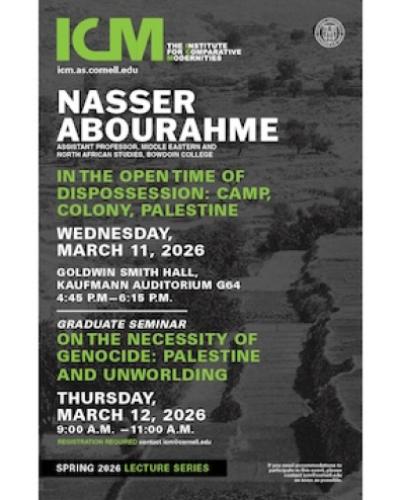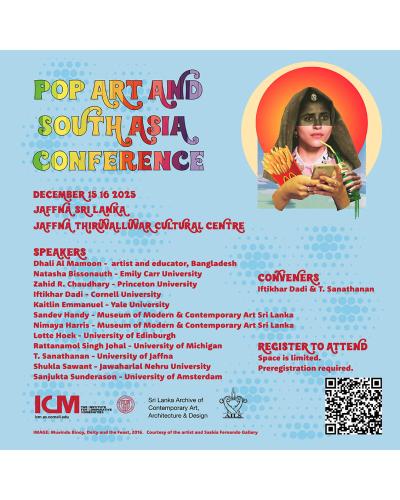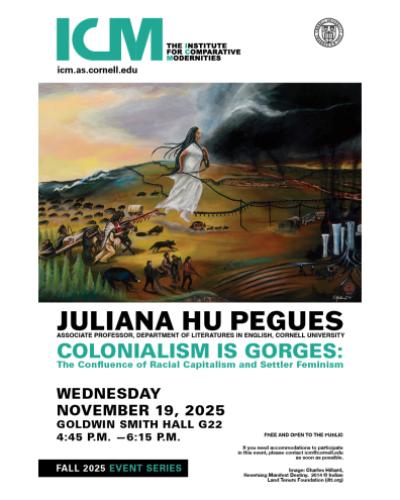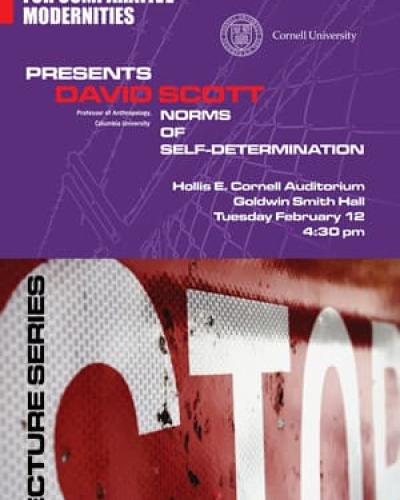Hollis E. Cornell Auditorium, Goldwin Smith Hall
The third lecture for the 2007-2008 academic year for the Institute for Comparative Modernities was delivered by Professor David Scott of the anthropology department at Columbia University. Professor Scott's most recent books include Refashioning Futures: Criticism after Postcoloniality(Princeton: Princeton University Press, 1999) and Conscripts of Modernity: The Tragedy of Colonial Enlightenment (Durham: Duke University Press, 2004). He is the founding editor of the journal Small Axe.
Professor Scott is currently working on the question of Third World sovereignty which was the subject of his presentation entitled “Norms of Self-Determination.” In his presentation, Scott systematically and critically examined the conditions stipulated for Third World sovereignty from the time of Empire to the post cold war context. He asked if sovereignty was irrelevant to the Third World given the present political order or if sovereignty was still an unfinished project? Scott traced how the ideological terms for the privilege of sovereignty had dramatically shifted from the decolonization period to the post cold war context. While the normative conditions for self-determination during the decolonization period rested on a moral imperative that granted a toleration of plurality of political forms, the post cold war period, Scott argued, has witness the meteoric rise of the concept of democracy where all debate around political possibilities are foreclosed by the "blackmail of democracy." Detached now from the anti-colonialist narrative marking the dusk of Empire, democracy has become the new global standard of the post cold war international system. Ironically, democracy as a new normative standard is highly intolerant because it endorses only a single form and ethos of political identity. As such, the dominance of democracy marks a triumphalist narrative of the West whereby "democracy is the new political name of an old civilizing project."





